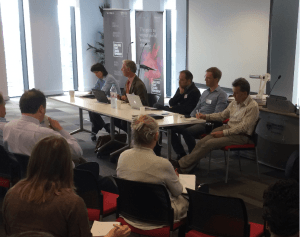
As part of the Government’s industrial strategy, the Midlands Engine Strategy has been proposed as a means to boost economic growth across the whole of the Midlands region. Alongside the “Northern Powerhouse” strategy, this is part of an attempt to rebalance the national economy.
In both strategies, however, the potential role of rural areas is somewhat lacking, despite the dominance of rural areas on maps of the midlands and north of England. Researchers in Liverpool (Nurse & Shaw) and Newcastle (Turner & Newbery) have set out some of the rural limitations of the Northern Powerhouse strategy so here I focus on the Midlands Engine.
The world “rural” appears twice in the 29 page strategy document, firstly in the introduction to the “Opportunities and Challenges” section where it is noted that “the region encompasses 11 cities, several important market towns and a range of economically important rural areas.” The second mention relates to a growing productivity gap which applies to both urban and rural areas of the Midlands region. Nowhere is there a recognition of distinctive economic functions, investment opportunities or infrastructure needs for rural development.
Previously, the “untapped potential of rural England” has been valued in the region of £300 billion (Commission for Rural Communities, 2008) A more recent IPPR report has described Britain’s rural areas as representing a “forgotten opportunity”. The report adds “Their economic contribution – 16.6% of GVA – derives from diverse activities; ‘traditional’ rural sectors such as agriculture and tourism operate alongside a growing presence of agri-tech, energy generation, and manufacturing. The latter accounts for the same proportion of the rural and the urban economy.”
Across Europe, there are growing calls to recognise opportunities for “smart specialisation” to capital on the economic potential of rural regions too. A European Commission report on Smart Specialisation calls for more attention to be afforded to eco-innovations and the bio-economy as well as to the opportunities that arise from exploiting the stronger interdependences between urban and rural places. The report also notes that “the innovation that does take place in rural areas … is not well incorporated into standard approaches to defining and measuring innovation” (Dargan & Shucksmith, 2008). Furthermore, innovation in rural areas mainly came from diversification into other activities than agriculture, also combining different technologies as well as organisational and marketing strategies (OECD, 2006; 2014).
Therefore, with the uncertainty over trade and agricultural subsidies relating to Brexit, it is concerning to see the rural economy once again marginalised in policy terms. Perhaps the new DEFRA minister will make a difference…over you to you Mr Gove!